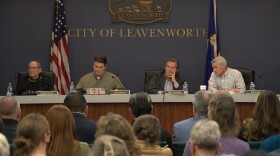In 2013 there were over 3 million Central American immigrants living in the U.S. Each year hundreds of immigrants die while attempting to cross the southern U.S. border. From 2014 to July, 31 2015 alone, 72,968 unaccompanied children from El Salvador, Guatemala and Honduras were apprehended at the U.S. border with Mexico. “Each year the Obama administration has seen more deportations than any preceding president”[1].
In recent years the U.S. government has deported more than 400,000 immigrants annually. These statistics place the immigration issue in a context of massive proportions, reducing each human being that crosses our border to one of thousands, even millions of individuals. These should be surprising numbers; they should shock us and tell us a story about American culture, economics and politics. They also depict a story of a yearning that millions have to be here among us within our borders. These numbers easily fill the curious mind with bewilderment, with wonder, with questions. Nevertheless, it is in the voices of the individual where the uncertainties of many immigration issues come into focus.
Sonia Nazario’s book Enrique’s Journey narrates the story of one of these immigrant voices. Enrique, a child from Honduras, whose mother Lourdes left him for greater economic opportunities in the U.S., attempts to journey 1,600 miles to cross Mexico from his home country seven times before finally passing over into the U.S. In the face of corrupt immigration and police agents, gangs, bandits, and extreme hunger, the teenager is relentlessly persistent in his attempts to find his Mother.
Enrique’s Journey is in many ways a simple tale of a child’s love and his willingness to do anything to be reunited with his loved one. Who of us wouldn’t walk a thousand miles to find a lost family member? Our human instincts would tell us to go and not look back. Enrique, his innocence, faith, and love for his mother speak to universal questions of family bonds and human endurance. In doing so, LA times journalist and Pulitzer Prize winner Nazario places Enrique at the center of the American immigration debate and prompts us to consider the value of a child’s life and the plight of thousands of Central American and Mexican children who travel to our southern border alone. A boy’s love for his mother is a certain thing that is lost in the debates of political punditry that so often focuses on soundbites of immigration statistics. Enrique’s Journey asks us to pause and listen to one child’s experience traveling north in the face of unspeakable danger
[1]
[1] http://blogs.reuters.com/data-dive/2015/02/25/tracking-obamas-deportation-numbers/







